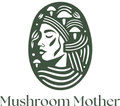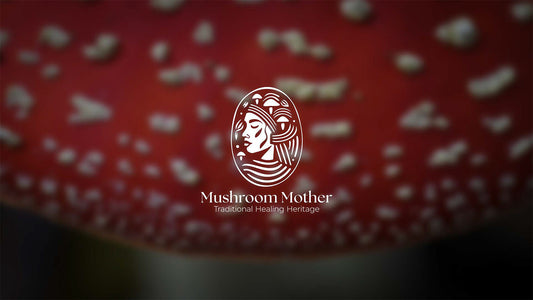Medicinal mushrooms have been stepping into the limelight of contemporary research, shedding light on their potential to address a multitude of health concerns. In this detailed exploration, we’ll look at the properties and benefits of a selection of these remarkable fungi, backed by scientific findings and references.
Amanita Muscaria

Amanita is a queen mushroom, a fabulous mushroom that treats everything, aligns all the systems in the body.
Muscimol is the prime constituent for the dried mushroom’s action. This chemical has been shown to treat stress and anxiety, ease muscular pain, promote restorative sleep and help PTSD. A study published in the Journal of Psychopharmacology noted that muscimol could bind to GABA receptors in the brain, which might explain its great sedative effects.
Researchers have found that muscimol acts selectively at ionotropic GABA receptors, which are part of the inhibitory neurotransmission in the brain. This finding helps explain the sedative effects of the mushroom and its historical use in various cultures. Muscimol's ability to bind to these receptors has made it a useful tool in neurochemistry for probing GABA receptors and has led to the development of related GABAergic agents (Johnston, 2014).
Amanita Muscaria has been known for its psychoactive effects for a very long time, with historical use by various cultures. However, muscarine, once believed to be the active constituent, was later found to be present only in small amounts and not responsible for the psychoactive effects. Instead, substances with isoxazole structures were identified as the primary psychoactive components. These discoveries have led to further research into the pharmacological actions of the mushroom, which are not yet fully understood (Pharmacologically and Toxicologically Relevant Components of Amanita muscaria, ResearchGate).
There's also a study on the anti-inflammatory properties of Amanita Muscaria extract (AME-1). The study, conducted in collaboration with Psyched Wellness and the National Research Council of Canada, focused on AME-1's effects on mast cells, important in inflammation found in skin, gut, brain, and lungs. The study found that pre-treatment with AME-1 reduced the release of pro-inflammatory mediators like inflammatory cytokines. Previous research had already indicated that AME-1 inhibits histamine release by mast cells. These findings suggest unique potential benefits of AME-1 in reducing chronic inflammation and the potential to treat common skin conditions. The article also mentions the addition of Amanita Muscaria to Canada's Natural Health Products Ingredients Database, emphasizing the mushroom's growing recognition in health and wellness contexts.
Scientific sources:
- Johnston, G. A. R. (2014). Muscimol as an ionotropic GABA receptor agonist. Neurochemical Research, 39(10), 1942-1947. Neurochem Res, DOI: 10.1007/s11064-014-1245-y
- ResearchGate Article: "Pharmacologically and Toxicologically Relevant Components of Amanita muscaria" ResearchGate PDF
- The study on tinnitus relief: GAD levels and muscimol binding in rat inferior colliculus following acoustic trauma
- Role of GABAA receptors in sleep regulation. Differential effects of muscimol and midazolam on sleep in rats
- Science.gov records
- Google Scholar records
- Pubmed records
Amanita Pantherina & Amanita Regalis

These mushrooms contain the same psychoactive ingredients as Amanita Muscaria, in a much higher dose. They are part of ongoing research for their neuro-modulatory capabilities, in pharmacological studies focused on the GABAergic system.
Lion’s Mane (Hericium erinaceus)

Our customer favorite, Lion's Mane mushroom is renowned for enhancing cognitive functions like focus, concentration, memory, and articulation, as well as promoting mental flow. It improves anxiety, cognitive function, and depression by fostering the growth of axons and dendrites in brain cells, thereby improving intercellular communication. Additionally, it's an adaptogen, supporting the body and immune system during stress, digestion and intestinal health, reduces inflammation and optimizes gut bacteria.
This mushroom, historically used by Buddhist monks for enhanced focus during meditation, boosts the activity of choline acetyltransferase, an enzyme crucial for synthesizing acetylcholine, a vital neurotransmitter in the body involved in memory and learning processes.
Lion's Mane contains hericenones and erinacines, compounds that stimulate nerve growth factor (NGF) synthesis. NGF is necessary for the growth of particular neurons in our brain and plays a role in myelination. A study in the International Journal of Molecular Sciences highlighted its potential neuroprotective effects that could play a role in managing conditions like dementia and Alzheimer's disease.
The research was conducted by Puei-Lene Lai and others, published in the International Journal of Medical Mushrooms in 2013. This study explored the effects of Hericium erinaceus on nerve growth factor (NGF) synthesis in nerve cells, focusing on its potential neuroprotective impact.
The study titled "Reduction of depression and anxiety by 4 weeks Hericium erinaceus intake," conducted by Mayumi Nagano et al., was published in 2010. It explored the effects of Lion's Mane mushroom (Hericium Erinaceus) on menopausal symptoms, depression, sleep quality, and indefinite complaints in women. The research showed that intake of Hericium erinaceus significantly reduced scores of depression and anxiety. The study highlighted its potential in influencing brain functions and the autonomic nervous system, suggesting its effectiveness beyond the nerve growth factor-enhancing action of Hericium erinaceus.
Scientific sources:
- Neurotrophic properties of the Lion's mane medicinal mushroom, Hericium erinaceus
- Hericium erinaceus Improves Mood and Sleep Disorders in Patients Affected by Overweight or Obesity
- Reduction of depression and anxiety by 4 weeks Hericium erinaceus intake
- The effects of Hericium erinaceus (Amyloban® 3399) on sleep quality and subjective well-being among female
- Improving effects of the mushroom Yamabushitake (Hericium erinaceus) on mild cognitive impairment
- Reduction of depression and anxiety by 4 weeks Hericium erinaceus intake
- Dietary Supplementation of Hericium erinaceus Increases Mossy Fiber-CA3 Hippocampal Neurotransmission and Recognition Memory in Wild-Type Mice
- Therapeutic Potential of Hericium erinaceus for Depressive Disorder
- Anti-Helicobacter pylori activity of bioactive components isolated from Hericium erinaceus
Cordyceps Militaris

This mushroom is a staple in Traditional Chinese medicine to treat numerous conditions from libido loss to cancer; and is valued in daily life for its energizing properties, as an excellent substitute for coffee.
It's often used by athletes to improve performance and endurance, as it's believed to increase the body's production of ATP (adenosine triphosphate), the primary energy carrier. ATP is crucial in delivering oxygen to muscle tissues. This oxygen is then utilized by muscles to generate the energy necessary for their functioning.
In 1993, the Chinese women's Olympic running team achieved remarkable success, breaking world records for the 1500, 3000, and 10000-meter races. This led to speculation about steroid use. However, it was revealed that their performance was enhanced by their coach's recommendation to take doses of Cordyceps after each training session. This event brought significant attention to the potential benefits of Cordyceps, particularly for their energizing properties that improve metabolism and respiratory function, enhancing athletic performance.
A 2015 study published in the Journal of Dietary Supplements was conducted to investigate its effects on exercise performance. It focused on how this mushroom might enhance cellular energy production, thereby improving physical endurance and strength. The research found that Cordyceps Militaris could potentially increase ATP production, which is vital for energy generation in the body. This supports its traditional use in improving exercise performance and overall vitality.
Chaga (Inonotus obliquus)

Chaga is a potent antioxidant source, with research in the World Journal of Gastroenterology suggesting it may help in supporting immune health. Its high melanin content and the presence of betulinic acid, derived from its birch tree host, contribute to its health-promoting properties.
A comprehensive review of the medicinal applications and resource potential of Chaga (Inonotus obliquus) can be found in a study published in the International Journal of Medical Mushrooms in 2015. This review offers an in-depth analysis of the chemical properties and therapeutic uses of Chaga mushroom, based on various scientific studies and bibliographic data.
Chaga effects in preclinical studies include antioxidant, analgesic, antitumor, antiviral, antidiabetic, immunomodulating, anti-inflammatory, anti-allergic, and cognition-enhancing properties. They've shown notable effects on exercise endurance and fatigue management. Chaga extracts have exhibited inhibitory and apoptosis-inducing actions against various cancer cells, including colon, lung, liver, and cervical cancers. Notably, chaga appears to selectively target tumor cells without affecting healthy cells and has shown efficacy against melanoma in animal models.
Scientific sources:
- Review on Chaga Medicinal Mushroom, Inonotus obliquus.
- Memorial Sloan Kettering Cancer Center Article: Chaga Mushroom
Purported Benefits, Side Effects & More - Progress of research on Inonotus obliquus
- Antitumor activity of water extract of a mushroom, Inonotus obliquus
- Chaga mushroom (Inonotus obliquus) induces G0/G1 arrest and apoptosis in human hepatoma HepG2 cells
- Amelioration of scopolamine induced cognitive dysfunction and oxidative stress by Inonotus obliquus
Turkey Tail (Trametes versicolor)

Its polysaccharide-K (PSK) content is so well-regarded that it's an approved cancer drug in Japan. The American Cancer Society acknowledges the potential of Turkey Tail in cancer therapy, particularly in enhancing the effects of chemotherapy and radiation therapy.
PSK was first approved as a prescription medication in Japan in 1977. This mushroom's polysaccharides have been used as adjuvants in cancer therapies, contributing to the country's total expenditure for anticancer agents. The mushroom's use is supported by evidence for its potential immune system benefits and its role in cancer therapy. The detailed breakdown is provided by Examine.com here.
Paul Stamets, a renowned mycologist, has a personal story related to the use of Turkey Tail mushrooms in cancer treatment. His mother, Patty, was diagnosed with an aggressive form of breast cancer. She participated in a clinical trial at the University of Minnesota Medical School, which was exploring the effects of Turkey Tail mushrooms in breast cancer treatment. During the trial, she took 6-8 grams of Turkey Tail mushrooms daily along with the cancer drug herceptin. Remarkably, Patty experienced significant improvement and reached a state of being disease-free with no detectable tumors. This story illustrates the potential of Turkey Tail mushrooms as an adjunct in cancer therapy.
Reishi (Ganoderma lucidum)

Known as a longevity tonic in traditional Asian practices, Reishi's triterpenoids, polysaccharides, and beta-glucans have been the subject of numerous studies. A 2013 publication in the journal Food & Function discusses Reishi's adaptogenic effects, helping the body to resist the damaging effects of stress and restore homeostasis.
An in-depth review of Reishi mushroom (Ganoderma lucidum) and its properties was published in Phytotherapy Research in 2021. This study provides a critical overview of Reishi's nutritional, cosmeceutical, mycochemical, pharmacological, clinical, and toxicological properties. It covers various aspects of the mushroom, including its chemical composition, potential medical applications: Ganoderma lucidum (Reishi) Review - PubMed.
Ashwagandha (Withania somnifera)

Ashwagandha is one of adaptogenic herbs. A review in the African Journal of Traditional, Complementary and Alternative Medicines highlighted its history in Ayurvedic medicine for promoting vitality and resistance to stress.
The study titled "An Overview on Ashwagandha: A Rasayana (Rejuvenator) of Ayurveda" delves into its historical use in Ayurveda as a Rasayana or tonic, particularly as a nervine tonic, and its various health benefits. The study explores its adaptogenic and anti-stress properties, along with its potential effects on conditions like neurodegenerative diseases, cancers, and arthritis. You can visit the article here.
For those interested in integrating medicinal mushrooms into their health routine, it’s crucial to seek high-quality sources of medicinal mushrooms and consult healthcare professionals. As research continues to evolve, we may see a rise in the therapeutic use of these fungi in mainstream medicine.


